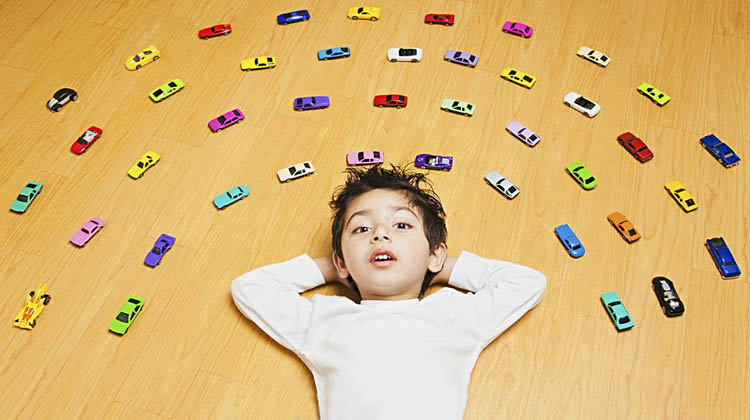
Cleaning Up After Play
Playing comes as an inherent nature in a child. A child considers play his/her “work”, his/her devotion. And by that we mean serious work.
Time and again, child psychologists and early education experts have laid great emphasis on playing as the best form of learning.
Child’s creation, be it a picture, an attempt at painting, building a sand castle – whatever he has curated feels important to him. His/Her work has the same meaning and significance, as a power point presentation or an embroidered piece of cloth may mean to you. Perhaps even more significant because your child’s work (read play) represents newly-acquired skills and abilities. Maybe this was the first time he put the train tracks together himself, or maybe he finally figured out how to put the pieces of a dinosaur puzzle together.
And just after he /she has reached the “Eureka “moment, comes in the parent declaring that it’s clean up time!
Asking the child to clean up immediately after he has managed a difficult task or acquired the roots of a certain new skill, is almost like asking a team leader to abandon the team just after it has started showing some profitability. Or like asking the captain of a ship to abandon the ship just after it has cleared the rough waters and is looking ahead for a smooth sail.
Stopping short or having to slam the breaks on creative play is understandably going to be difficult at times for any toddler/child — especially when the main ambition raging within the child at that point of time is – to feel in control – and you are usurping that need.
That said, playtime does eventually always have to come to an end — that is inevitable, but it’s also inevitable that our children may not always have to immediately clean up. Sometimes, we can actually allow them to leave their toys and creations, as it is. It may contribute to an already overflowing playroom, it may literally and figuratively add to our feelings of drowning in toys and clutter and it may require that we have to go out of our way to walk around or over something treasured in our path, but when we do this, when we allow our child to preserve his/her “work,” we are sending a strong message of respect and appreciation for the time and effort he/she put into his/her project.
If you sense that your child may be reluctant to put his/her toys or play material immediately away once playtime is over, acknowledge the importance of their work by telling him/her that they do not have to clean up pronto. Instead, make them feel that their creation is much valued, by saying:
• Let’s put your name on your creation so that everyone can appreciate it
• You don’t have to put this away, but we do have to move it. Let’s find a safe place to put it together.
• You can leave this out, but we have to take a break. You can come back to your work as soon as we are back home
• Let’s set it up where we can close the door, or where it won’t be in our way later
• You sure worked hard on this, let’s take a picture of it before we put it away
• We need to put part of this away, but we can leave some of it out, you choose which part to keep out.
• Superb! This is such a special creation, let’s find a special place to hang/display it
• We are taking this as a gift for grandma next time we visit her. Until then, where do you want to keep it?
Being willing to consider their play as meaningful work actually models the kind of behaviour and skills that we would like our children to emulate.
Such as:
• Each effort is worthy of respect
• It’s okay if things don’t go our way, at times
• Be appreciative of everyone’s effort, time and creativity
• Sometimes it’s nice to let things just be!
• You don’t have to be in control all the time
And one of the biggest advantage of showing respect towards your child’s work of play ‘by just letting it be for a while, is that the child innately develops the ability to let go. If you let the mess remain for a certain time, chances are that your child’s ability to move on improves drastically and in all likelihood, he /she will willingly let the project go. Gradually you will find the resistance to clearing the mess diminish.
So try. Try not to insist that your child has to clean up immediately after play all the time. It will mean so much to your child and show him that you really do respect his/her important ‘work’.
Let your child know that most of the time, it will be important to clean up but sometimes, you can bend the rules.
Just sometimes you can let the clutter reign and let his/her masterpiece steal the spotlight!
